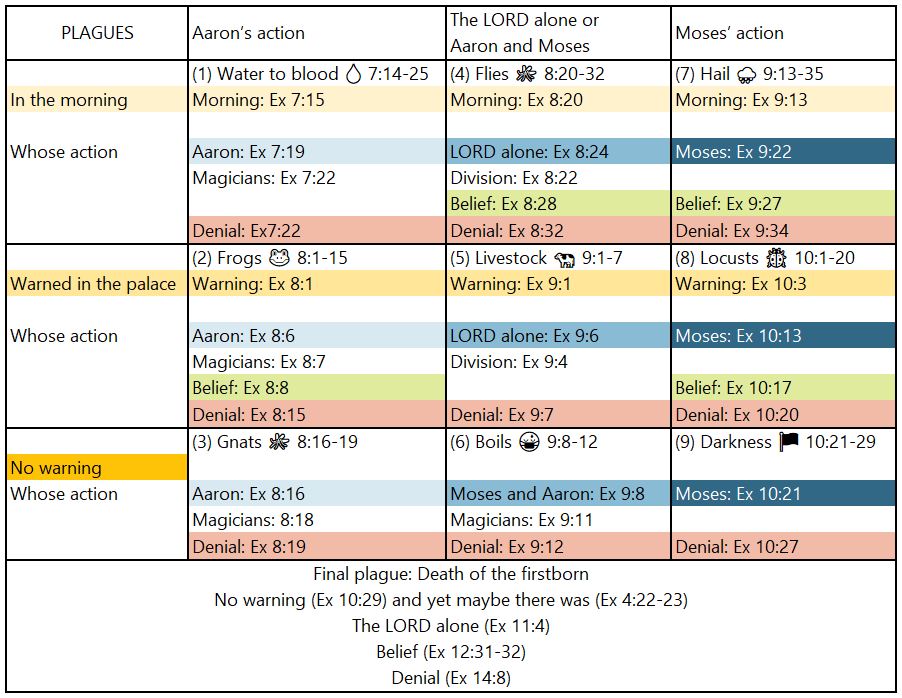Exodus 7-12. Pharaoh refuses to let a million slave laborers walk free, and the Egyptians pay the price.
Why it is important
It is part of why God called Moses. The LORD promised to deliver his people to their own land (Ex 3:7-10) but prophesied that it would take “a mighty hand” to convince Pharaoh (Ex 3:19-20). (The plagues are the “mighty hand.”)
What is in this story
- The Hebrews (Jews) have been enslaved and oppressed. In Ex 5:1, Moses and Aaron ask Pharaoh if they can all leave, but Pharaoh refuses (Ex 5:2) and makes life even worse for the Hebrews (Ex 5:7)
- Next, Moses and Aaron perform a miracle in front of Pharaoh, but he thinks it a hoax and refuses again (Ex 7:10-13).
- For the next four chapters (Ex 7:14-10:29), Moses and Aaron ask to be set free, God sends a plague, and Pharaoh still says no. This happens nine times.
- Finally, a tenth plague: God kills all the firstborn males in Egypt but “passes over” the Hebrews who obey him.
Things that are not so well-known
There are a lot of connections between the first nine plagues, and can be arranged as three “triads.” See the chart in the picture.

Theology and doctrine
- Pharaoh’s hard heart. At times Pharaoh hardens his own heart (Ex 8:32) or it is unclear who did it (Ex 9:7). But God promises he will harden his heart in Ex 4:21 – long before all of the plagues – and he does so, clearly, starting with the sixth plague (Ex 9:12). It’s kind of up to us to wrestle with what that means. The book of Romans does discuss this also (Rom 9:17-18)
- Passover. I should have made this its own lesson and I can’t believe I didn’t! Maybe in 2022.
Footnotes
Check out older lessons and the schedule for this whole year at www.jasonmcdermott.org.
Unless otherwise indicated, all Scripture quotations are from The ESV® Bible (The Holy Bible, English Standard Version®), copyright © 2001 by Crossway, a publishing ministry of Good News Publishers. Used by permission. All rights reserved.

No responses yet